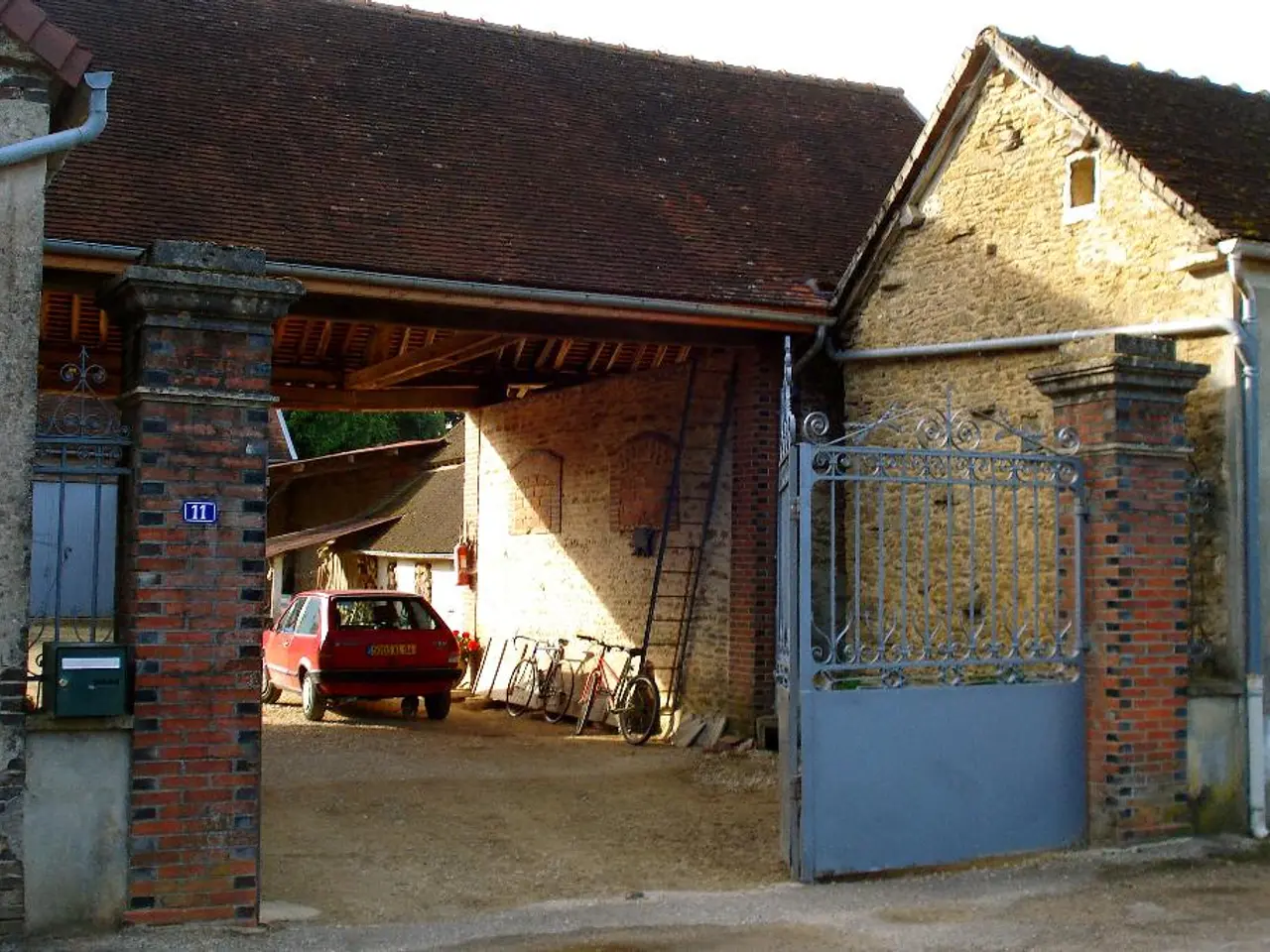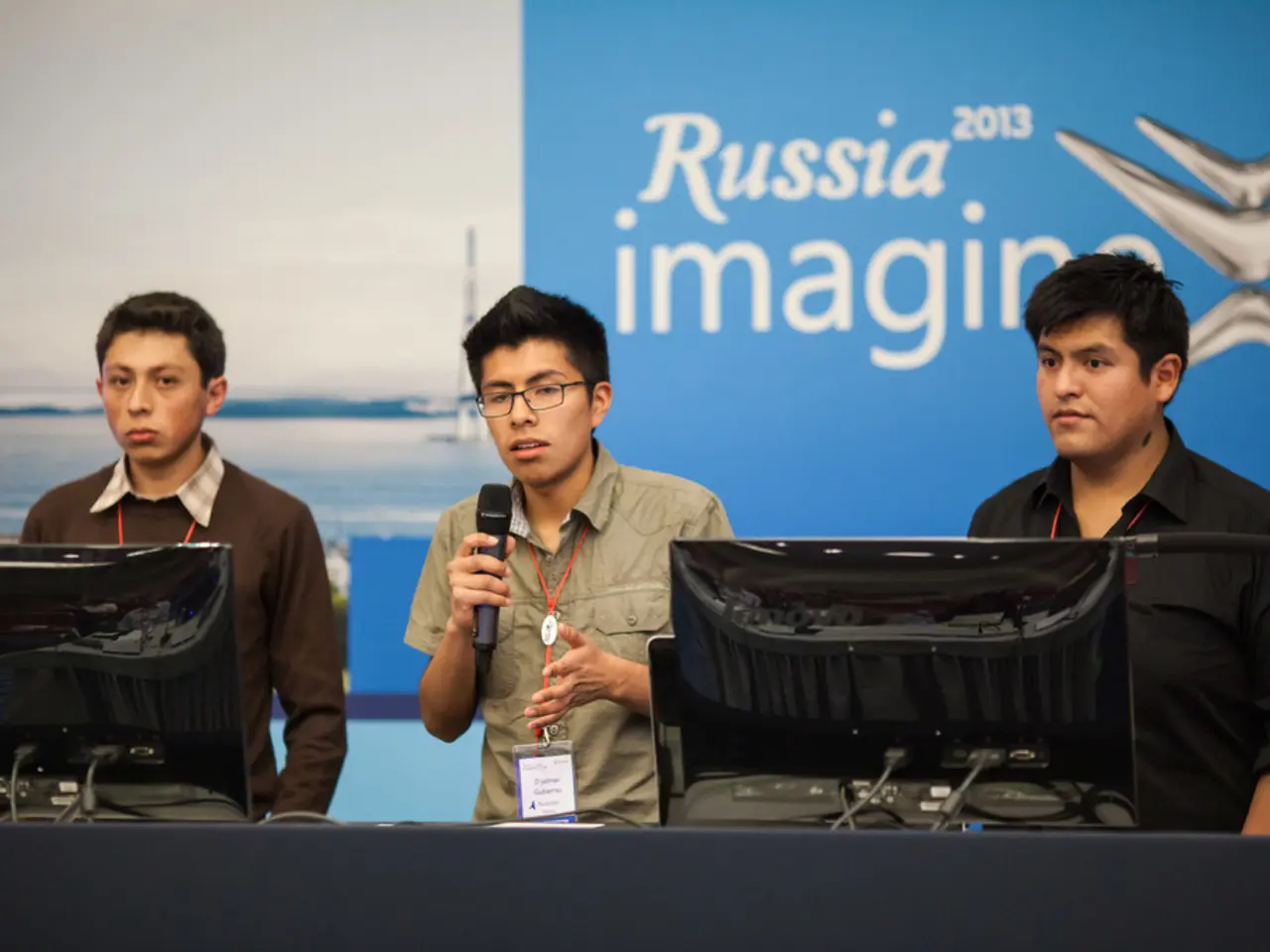Steel giant ArcelorMittal declines proposals for climate-neutral manufacturing; IG Metall advocates for a steel industry meeting
Title: Germany's Steel Industry Faces an Uncertain Future: ArcelorMittal Drops Climate-Neutral Plans, IG Metall Demands Steel Summit
Social Media: #SteelIndustry #Germany #ClimateNeutral #ArcelorMittal
Join the conversation as the German steel industry grapples with ArcelorMittal's withdrawal from climate-neutral production plans for Bremen and Eisenhüttenstadt. The workers unions and industry observers are up in arms, citing lost jobs and environmental concerns. The Department of Economics bemoans the decision, calling it a massive setback for the country's efforts to transition its industries toward sustainability. Jürgen Kerner, Deputy Chairman of IG Metall, has gone as far as to demand an immediate crisis summit for the steel industry. Let's delve deeper into the story and the potential implications for Germany's steel sector.
The proposed climate-neutral transformation of the steel industry is a gargantuan endeavor, spanning over a century, according to some experts. With thousands of jobs in Bremen and Eisenhüttenstadt on the line, the workers have agreed to the transition, the government is willing to finance the project, and the power prices are heading in the right direction. Regrettably, it's the executives at ArcelorMittal whose resolve appears to be wavering.
ArcelorMittal has opted against adopting "green" steel production in Bremen and Eisenhüttenstadt, abandoning plans that would have seen the company switch from coal to hydrogen as an energy source. This hydrogen, produced from renewable sources such as wind or solar power, would have minimized carbon emissions and made their operations climate-friendly. By doing so, the company has forfeited a hefty sum of €1.3 billion euros in potential funding from the government. With subsidies, the company claimed the project was economically infeasible.
For the federal government, this decision represents a substantial setback in the transformation of industries. The steel sector is one of the largest contributors to CO2 emissions in Germany and plays a crucial role in the country's efforts to achieve its climate goals. Kerner, of IG Metall, has called for significant support for the steel industry, criticizing the situation as unacceptable, especially given France's progress in creating climate-friendly industries through political subsidies.
While ArcelorMittal retreats, other primary steel producers in Germany remain steadfast in their pursuit of climate-neutral production. Prominent projects are underway at Salzgitter Flachstahl, Thyssenkrupp Steel Europe, and Stahl Holding SAAR, with combined financing decisions totaling around €5.6 billion. These projects are already in motion, representing ongoing momentum in the sector's transformation.
The German government aims to bolster the steel industry by lowering electricity taxes and grid fees to the European minimum, an effort to alleviate energy costs and improve competitiveness. However, the industry faces considerable hurdles, with unemployment rates high and crude steel production on the decline.
The internationally acclaimed research group at RWTH Aachen, funded by the German Research Foundation, is focused on groundbreaking climate-neutral steel technologies. The adoption of circular economy approaches, such as advanced recycling, modular construction, digital tracking, and digital twins, could substantially reduce emissions and raw material use in steel production. These technologies also improve supply chain resilience and cut costs, but they require supportive policies, including technology support, carbon pricing reforms, and circularity-aligned public procurement.
In the face of ArcelorMittal's withdrawal, the future of Germany's climate-neutral steel industry hangs in the balance. To navigate the economic challenges, maintain strong policy support, and push forward with innovative and circular technologies, the steel sector must create a competitive domestic market environment. The steel industry's climate-neutral transformation in Germany is at a crucial juncture, poised for change amid ArcelorMittal's retreat but sustained by the efforts of other companies and research initiatives dedicated to a sustainable and climate-conscious steel sector.
Sources:
- https://www.deutschland.de/themen/industrie/stahlindustrie-an-kippepunkt-arcelormittal-krieft-aus-dem-weg-199408
- https://www.tagesschau.de/ausland/europa/deutschland-an-kippepunkt-in-der-stahlindustrie-101.html
- https://www.wiwo.de/wirtschaft/industrie/arcelor-mittal-seppeleichert-im-stahl-autarkie-16126655.gg
- https://www.ruhr-uni-bochum.de/forschung/projekte/research_networks/circulairsteel
- https://wwf.de/de/vertraeue/nachhaltigkeitsberichte/technologie-veranderung-stahl/technologie-veranderung-stahl_45403.html
- The proposed climate-neutral transformation of the German steel industry, spanning over a century, is a colossal challenge that requires a collective effort from all stakeholders.
- The federal government's policy and legislation aim to lower electricity taxes and grid fees to European minimum to support the industry, addressing concerns over energy costs and competitiveness.
- While ArcelorMittal has abandoned its plans for climate-friendly production, other steel producers like Salzgitter Flachstahl, Thyssenkrupp Steel Europe, and Stahl Holding SAAR continue their pursuit of green steel technologies.
- To achieve a sustainable and climate-conscious steel sector in Germany, the adoption of advanced circular economy approaches, such as recycling, modular construction, digital tracking, and digital twins, is crucial and should be encouraged by supportive policies.
- In the light of ArcelorMittal's decision, IG Metall, along with workers unions and industry observers, are demanding a steel summit to address the potential implications for the sector's future, especially as the country grapples with climate-change and environmental-science concerns.




